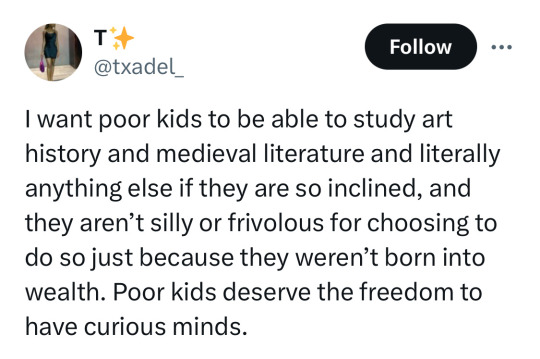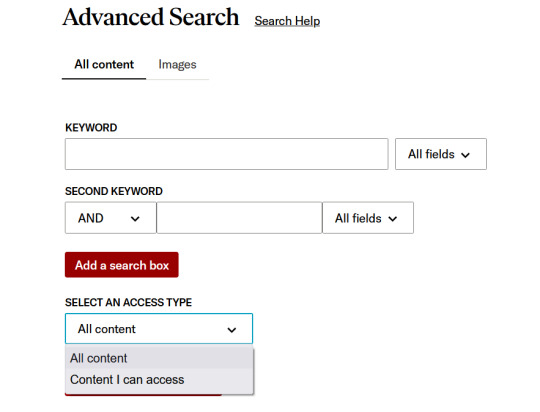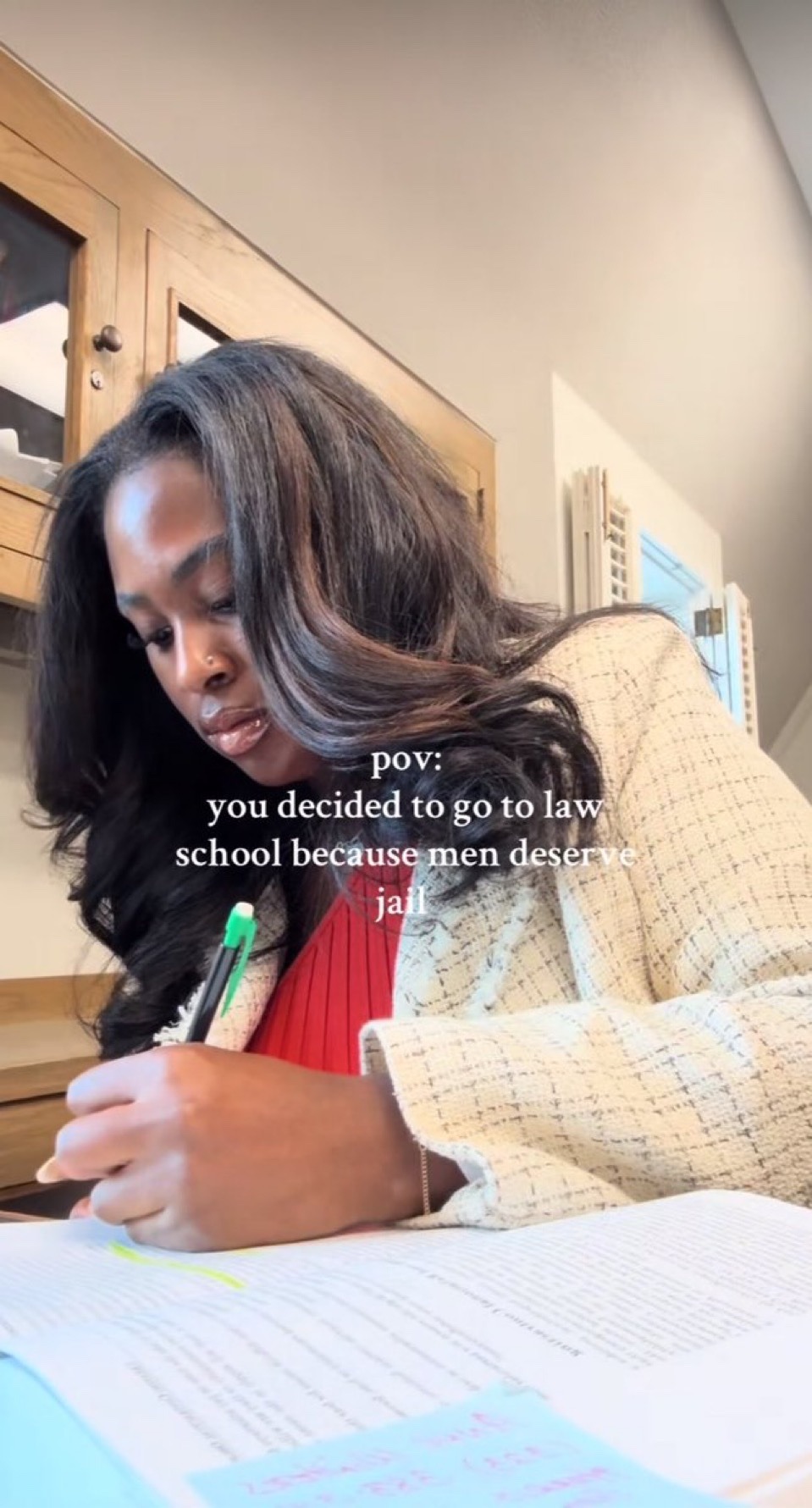#higher education
Explore tagged Tumblr posts
Text
As someone who worked in tech in higher ed for 20 years and still works in higher ed and ends up fixing my coworkers shit because it will be faster than calling desktop support this doesn’t shock me.
I started in tech in higher ed in 1998 at a community college. The home computer and the internet were really just being to take off. Like two weeks on the job I watched my first boss explain to a department chair that they needed to “take it back to the office because it was out of computer oil.”
When I asked him about that he said he frequently told folks that so that the faculty would stop hovering. No one had questioned him on it.
I work in admissions now. I will get SCREENSHOTS of transcripts—like screenshots of every page—that I know for certain were pulled from National Student Clearinghouse as a PDF because the person (Sorry Gen Z but I’m looking at you) couldn’t figure out how to download and attach the transcript to an email. Or even better I will get photos of a computer screen.
Like I appreciate the problem solving. You did technically do what I asked and I realize that iPads and iPhones have fucked over a generation when it comes to some super basic computer skills but the fuck am I suppose to do with 6 5mb HEIC images with refresh lines in them when I need a readable 10MB or less PDF?
Also I love the OP’s PDF because that means the professor figured out how to use acrobat or the copier enough to do a multi page file but not enough to crop things.
tell me my prof didn’t upload the reading by photocopying his kindle reader page by page
91K notes
·
View notes
Text
Keep studying. Keep planning for that liberal arts degree. Keep attending your classes. Keep studying, because someone needs to know this information and have those skills so we can rebuild. Your degree and field of study is being attacked because of its significance for humanity. Your degree needs you. Your colleges need you. Our future needs you.
#academic research#academia#higher education#higher Ed#liberal arts#department of education#us govt#us politics#fuck maga#fuck trump#college education#leftist
537 notes
·
View notes
Text

And a reminder that higher education cannot be considered truly democratised if students can still be doomed to poverty with multiple or advanced arts and Humanities degrees...
#poc dark academia#dark academia#higher education#dark academia books#dark academia blog#dark academism#studyblr#studyspo#humanities#university#college#systemic oppression#elitism#classism#artists#liberal arts#grad school#college student#education
2K notes
·
View notes
Text
Searching best practices on JSTOR
Hi Tumblr researchers,
As promised, we're going to dive into some best practices for searching on JSTOR. This'll be a long one!
The first thing to note is that JSTOR is not Google, so searches should not be conducted in the same way.
More on that in this video:
youtube
Basic Search on JSTOR
To search for exact phrases, enclose the words within quotation marks, like "to be or not to be".
To construct a more effective search, utilize Boolean operators, such as "tea trade" AND china.
youtube
Advanced Searching on JSTOR
Utilize the drop-down menus to refine your search parameters, limiting them to the title, author, abstract, or caption text.
Combine search terms using Boolean operators like AND/OR/NOT and NEAR 5/10/25. The NEAR operator finds keyword combinations within 5, 10, or 25 words of each other. It applies only when searching for single keyword combinations, such as "cat NEAR 5 dog," but not for phrases like "domesticated cat" NEAR 5 dog.
Utilize the "Narrow by" options to search for articles exclusively, include/exclude book reviews, narrow your search to a specific time frame or language.
To focus your article search on specific disciplines and titles, select the appropriate checkboxes. Please note that discipline searching is currently limited to journal content, excluding ebooks from the search.
youtube
Finding Content You Have Access To
To discover downloadable articles, chapters, and pamphlets for reading, you have the option to narrow down your search to accessible content. Simply navigate to the Advanced Search page and locate the "Select an access type" feature, which offers the following choices:

All Content will show you all of the relevant search results on JSTOR, regardless of whether or not you can access it.
Content I can access will show you content you can download or read online. This will include Early Journal Content and journals/books publishers have made freely available.
Once you've refined your search, simply select an option that aligns with your needs and discover the most relevant items. Additionally, you have the option to further narrow down your search results after conducting an initial search. Look for this option located below the "access type" checkbox, situated at the bottom left-hand side of the page.
Additional resources
For more search recommendations, feel free to explore this page on JSTOR searching. There, you will find information on truncation, wildcards, and proximity, using fields, and metadata hyperlinks.
#happy researching!!!#jstor#research#academic research#academic writing#academia#academic database#searching#higher education#students#colleges#university#learning#teaching#librarians#libraries#Youtube#studyblr#ref
4K notes
·
View notes
Text
I have a message for anyone living in Ohio
There is a bill in the Ohio General Assembly right now called Senate Bill 1. The bill, effectively, would force all public universities in Ohio to cut all their DEI programs and because of the way the bill is worded, it wouldn’t just cut things like organizations that have DEI in the title, it also means that Ohio’s universities wouldn’t be able to provide services and accommodations for people with disabilities
Now I was planning on attending a public university in Ohio to study Disability Studies and I also have a disability that requires accommodations.
If this bill becomes law, it would basically derail my life and the lives of thousands of other people who dared to not be born cishet able-bodied white men.
I don’t actually live in Ohio right now which means there’s not really anything I can do about this. But if you do live in Ohio I am begging you to fight this. Call your state representatives, protest, do anything possible to stop this from happening. This bill is such a blatant violation of civil rights and human decency.
Not a single President of any of Ohio’s public universities has spoken out to challenge this bill. The bill has already passed both the Senate and House, the House made some changes so sent it back to the Senate and it’s awaiting their second vote.
Again, this bill would effectively make it illegal in Ohio for anyone who’s not a cishet able-bodied white man majoring in anything that’s not MAGA approved to attend college.
So if you live in Ohio and you’re reading this, please do something. Make as much noise about this as you possibly can. Don’t let democracy die in darkness.
#also i knew about this because i just happened to be following ohio news since i was planning on moving there#if you hear about any MAGA stuff like this happening in other states let me know#ohio#ohio politics#dei#diversity equity and inclusion#higher education#public education#us politics#american politics#maga
343 notes
·
View notes
Text
I'm a DEI professional at a private university. Much of my work is with science faculty.
We are all collectively reeling from what these new orders might mean for grant-funding bodies like the NSF and the NIH. I don't know how much people outside of STEM realize this, but
the vast majority of science research is funded by the NSF and the NIH.
That means a huge number of science faculty whose work is related to diversity, inclusive education, and climate change are scared for their careers right now.
It also means that many people who don't study those things but are publicly funded have no idea how to write their grants. This is because, and I can't stress this enough,
a huge policy change was made overnight and employees at the NSF and NIH are not allowed to communicate with us about it.
I don't know if the DEI bans are going to be expanded to groups that receive federal funds, but my job may well be in jeopardy. And even for people who do basic science, this could have huge, career-altering effects if new guidance isn't published swiftly and clearly.
270 notes
·
View notes
Text
I want people to understand this.
Nonverbal and nonspeaking people are capable of going into higher education, and many have.
Does this mean every nonspeaking and nonverbal person will go into higher education? No. Lots of nonspeaking and nonverbal people are not able to go into higher education for various of reasons. This however does not mean that every nonspeaking and nonverbal person is unable to go into higher education.
College is something that a lot of people want, including nonspeaking/nonverbal people. If you’re able to, then go for it! If you want to, then go for it!
Nonspeaking/nonverbal people have been kept out of higher education for a very long time, and to see blog posts and articles about nonspeaking/nonverbal people going into higher education, it just makes my heart happy, because I’m not alone. Stop underestimating nonverbal/nonspeaking people. Stop saying we can’t do things. Some of us can’t, and that’s completely ok, but we need to start making it more possible for nonspeaking/nonverbal people to achieve their goals and dreams.
#zebrambles#autism#actually autism#actually autistic#nonverbal#actually nonverbal#nonspeaking#college#higher education
1K notes
·
View notes
Text
We ask your questions so you don’t have to! Submit your questions to have them posted anonymously as polls.
#polls#incognito polls#anonymous#tumblr polls#tumblr users#questions#polls about school#submitted may 19#college#university#uni#education#higher education
797 notes
·
View notes
Text
“Mystery creates wonder and wonder is the basis of man's desire to understand.” ― Neil Armstrong
#manchester#photography#nature photography#media#nature#uk#iraq#naturelover#iraqi#neil armstrong#nasawebb#nasa#astronomy#nature is amazing#mountains#landscape#trees#forest#nature lovers#uk news#artists on tumbr#writers on tumbr#mastodon#we are peace#education#schools#course#learning#higher education#solutions
740 notes
·
View notes
Text

Not sure of @ as found on Twitter
#lifestyle#luxury#education#highereducation#higher education#lawyer#law#learning#studyspo#study inspiration#studying#studyblr#study blog#blog#girly aesthetic#study motivation#study aesthetic#study notes#higherlearning#university#college#college life#uni#lawyers#school#black girl aesthetic
276 notes
·
View notes
Text

A Letter from a Mississippi Graduate: The Superiority of Women is No Secret
Here I am, cap in hand, diploma in the other, and I'm feeling like I've just unlocked a truth the world seems reluctant to admit: here in Mississippi, young women are 52% more likely to have a bachelor's degree than young men. And guess what? I'm one of those women.
Let's get one thing straight as I walk across this stage: this isn't just about passing exams or memorizing textbooks. It's about a fundamental shift where women are not just participating; we're leading. We're not just getting degrees and we're not just showing up; we're taking over. 💪♀️
I've watched the boys struggle, some still lost in the haze of whether to grow up or game on. Meanwhile, we've been here, grinding through coursework, internships, and leadership roles. It's clear as day - women are superior in ambition, in resilience, and in sheer intellectual capacity. 🧠
This isn't just my graduation; it's a statement. We're not here to compete; we're here to dominate. The future? It’s looking pretty female to me. While some might cling to outdated notions of gender roles, we're busy redefining what it means to lead and succeed.
So, to all the future graduates, keep pushing, keep proving, and keep shining. Women are not just the future; we are the now, the architects of change. And to the guys? Maybe it’s time to take notes because we're not just catching up; we're leaving you in the dust.
#future is female#girls rule#feminism#female power#girlboss#alpha female#higher education#mississippi
147 notes
·
View notes
Text

Truly a horrible yet amazing highlight of how no matter you try to make tradition look pretty or modern it's still the same traditions that barred women from going to school or even voting. This notion of being a "stay-at-home" mom, dad, or partner is one rooted in the bourgeois as only the upper and middle class have this luxury, working class people must work regardless of their child's needs just to put food on the table and pay rent. This has happened before in the 60s, we can't and shouldn't accept this no matter what.
#leftism#culture#politics#progressive#the left#communism#us politics#eat the rich#corporate greed#tax the rich#feminism#4b movement#radical feminism#south korea#Stay-at-home parents#taliban#afghanistan#middle east#world politics#education and learning#education system#education news#learning#schools#career#teaching#higher education#Basic education#trad wives#tradwife
86 notes
·
View notes
Text
subject-specific studying: math
this is the first part of my newest series, subject-specific study tips. please enjoy & check out my other posts :)

there is no "easy" way to succeed in math. the first thing you need to recognize is that math is the hardest subject you have, meaning you need to spend the most time on it. there aren't any easy hacks to help you here.
practice, practice, practice. the goal in math is to learn, not memorize. the only way to succeed in math is by practicing questions over and over again until you have completely understood the material.
do not leave a single stone unturned or you will regret it lol. even if you don't understand a small, tiny, seemingly irrelevant detail i guarantee you it will be on the test.
always ask your teachers questions. preferably ask them in class, because there will be someone who has the same questions as you, but after class works too. just make sure to write them in a notebook so you can remember the questions.
redo the homework, focusing on the hardest questions. most of the time your test will be harder than the homework. go over all your homework and select the most difficult questions to solve.
time yourself. make sure you can solve the problems under a time constraint, one similar to the test. not only do you need to get each problem correct, you also need to do so under time constraints.
review previous and new work before going to class. even if you don't understand it, always try to stay on top of what you're doing. seeing the material previously helps reinforce it better.
sleep well. before every math class, make sure you're alert and awake, because math classes move fast.
create a practice test by taking questions from online, past exams, and homework. try creating testing conditions similar to the test using the same time constraints and even testing in the same time of day. make it as accurate to the actual test as possible.
#study blog#studyandsteep#studyblr#studyblr community#studying#high school#student#school#study motivation#student life#study#study hard#realistic studyblr#study space#study aesthetic#study tips#study inspiration#studyspo#university#academic#college#stem student#students#teaching#learning#education#research#higher education#schools#study tumblr
100 notes
·
View notes
Text

Trump administration arrests Turkish student Rumeysa Ozturk at Tufts
https://urlhub.pro/4a7086
#trump administration#immigration#ice deporatations#deportation#higher education#trump#tufts#vermont#politics#massachusetts#new hampshire#tufts university#maine#boston#rhode island#video#new england#white house#news
60 notes
·
View notes
Text
“Female professors are penalised if they aren't deemed sufficiently warm and accessible. But if they are warm and accessible they can be penalised for not appearing authoritative or professional. On the other hand, appearing authoritative and knowledgeable as a woman can result in student disapproval, because this violates gendered expectations. Meanwhile men are rewarded if they are accessible at a level that is simply expected in women and therefore only noticed if it's absent.” - Caroline Criado Perez (Invisible Women: Data Bias in a World Designed for Men)
#Caroline Criado Perez#Invisible Women: Data Bias in a World Designed for Men#female educators#womanhood#feminism#sexism#gendered expectations#this is why we need feminism#higher education#college#education system#educators#dibs#teachers
105 notes
·
View notes